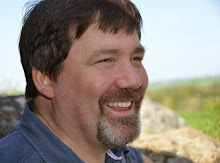One of the characteristics of most third stream groups is a recognition that they are called out of the world and called to a different type of life - a life devoted to God.
This awareness came into sharp focus at the time of the Reformation when those seeking an expression of local church made up of believers found themselves strongly opposed by the Protestant Reformers who were generally wedded to the concept of the state church.
In this latter type of church, the conduct of church members was often no different from that of the world around it. Practical holiness was often a mark of the groups seeking a New Testament style of church, comprising believers.
The following quotes are illustrative of the differences that existed at that time:
"I verily see more of moral improvement among them [Anabaptist groups] than with those who are Lutheran." (Philip of Hesse in a letter to his sister Elizabeth of Saxony)
"among us there is no betterment of life." (Martin Luther to Casper Schwenckfeld)
"The Anabaptists have the semblance of outward piety to a far greater degree than we and all the other churches which in union with us confess Christ; and they avoid the offensive sins that are very common among us." (statement before Bern City Council C16)
"The magistrates are rather coarse and carnal men and the preachers are very neglectful; many of them frequently get drunk. Since the lords and the council-men are that kind of people ... they drive the poor people away with their wild way of life. The plain man cannot bring himself to recognise the Church of Christ among such wild persons and to distinguish correctly between doctrine and life." (Martin Bucer)
All quoted in Verduin, The Reformers and Their Stepchildren (Dissent and Nonconformity)

No comments:
Post a Comment